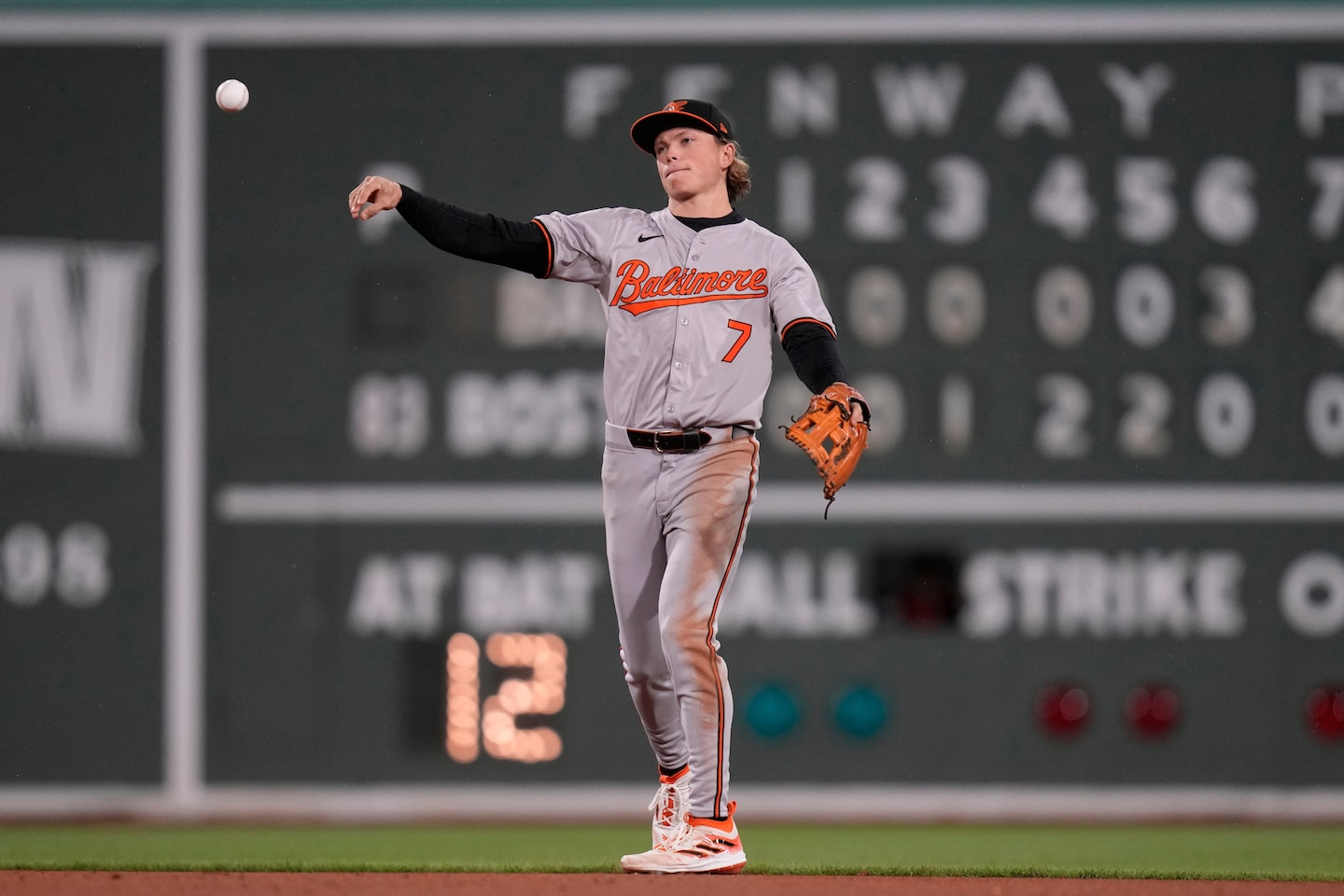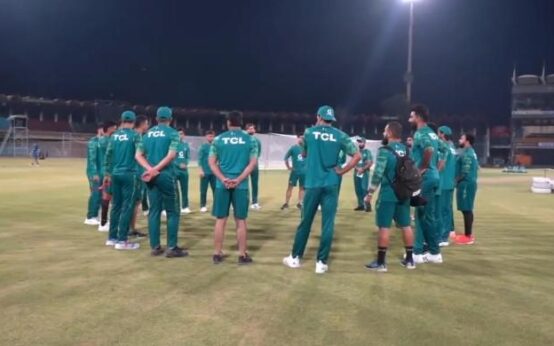Some people within the Orioles organization knew that Holliday, son of former big leaguer Matt, would probably choose No. 7 if he had his way. His father wore that number for years, and Jackson wore it as he tore up Class AAA pitching for a week with the Norfolk Tides. But Holliday was not going to ask for it. He knew that number was sacred.
Years before the 20-year-old Holliday was born, that number belonged to longtime Orioles coach Cal Ripken Sr. No Baltimore player had worn it since his son, Billy, in 1988. It was not retired, not exactly, but the Orioles had not been willing to give it to anyone else, either.
Yet as they planned for Holliday’s arrival, Orioles officials considered the possibility that Holliday might be the right player to bring No. 7 back into circulation. But giving No. 7 to Holliday was a bigger deal, even, than when they decided to give Mike Mussina’s old number, 35, to Adley Rutschman two years ago. Mussina is an all-time Orioles great. But the Ripkens are Orioles royalty.
Still, if the Orioles are right about him, Jackson Holliday is a once-in-a-generation type, too. So late Tuesday night, as Holliday was getting ready for an early-morning flight to meet the team in Boston, Orioles officials made a suggestion. And for perhaps the first time in a young professional baseball career marked by uncommon comfort on the field and in the batter’s box, Holliday seemed unsure.
“They were like, ‘You can call Cal [Ripken Jr.] if you want,’ ” Holliday said. “But I didn’t really want to bother him, it was like 11 o’clock at night.”
Our family is thrilled that @J_Holliday7 will be wearing dad’s #7 … Excited to watch him play!
— Cal Ripken, Jr. (@CalRipkenJr) April 10, 2024
The next morning, at 7:45 a.m., Ripken Jr.’s phone rang. Holliday didn’t want to bother the Hall of Famer, but longtime Orioles clubhouse attendant Fred Tyler didn’t mind. Tyler has worked for the Orioles longer than Holliday has been alive and has decades of history with the Ripken family. So, with the Orioles open to the idea, he called Ripken Jr. He asked him how he would feel if someone else, after all this time, finally wore his father’s number.
“My immediate reaction was I thought it was great,” Ripken said. He checked in with his brother, Billy, who was supportive, too. Tyler passed along Cal Ripken Jr.’s phone number. Shortly thereafter, Holliday called the franchise icon, who didn’t allow the kid much time to fret.
“He was very respectful, but in some ways, I took over the call,” Ripken said with a laugh. “I said, ‘are you in the lineup tonight?’ He said, ‘yes, hitting ninth.’ I said, ‘well that won’t be for long.’ ”
Ripken told him he hit eighth and ninth for the first few weeks of his big league career, too. By the end of the call, it was done. A few hours later, Holliday debuted as the first Oriole to wear No. 7 in decades. And by the next day, Ripken Jr. — recently welcomed back into the organization as a part of David Rubenstein’s new ownership group — was doing interview after interview with national and local outlets, talking about the kid, the number and his father, who died in 1999.
“Because it’s being brought up now, it’s a nice way to remember Dad. We’re talking about Dad now,” Ripken said. “The spirit of the Orioles now, developing players in the minor leagues, sending really great talent to the big leagues — that’s what Dad was all about. For the first 14 years of my life, he was part of an organization that kept running really good players through the minor league system and sending them to the big leagues. So I just thought it was a wonderful time to connect that way.”
Few teams are funneling elite talent to the majors quite like the Orioles are these days, who have so many gifted position players in their system that they hardly have room for them all. Holliday was one of a handful of young players in Norfolk who would make many major league rosters, a group that was dubbed the Norfolk Five until his departure. The remaining four — Heston Kjerstad, Kyle Stowers, Coby Mayo and Connor Norby — could probably compete for spots in Baltimore’s lineup right now. Stowers (1.087 OPS in Class AAA this year, entering Saturday) and Kjerstad (1.352 OPS with seven homers in 53 at-bats) have made strong arguments that they should already be here.
In fact, as Holliday prepared to play his first game at Camden Yards on Friday evening, he did so across the field from two former Orioles farmhands, left-hander DL Hall and infielder Joey Ortiz. Both were highly touted prospects who never found their way into regular big league duty in the loaded Orioles system but have slid right into regular roles with the Milwaukee Brewers since they were traded for ace Corbin Burnes this winter.
But even in that loaded system, Holliday emerged as something different. When he signed with the Orioles after being drafted in 2022, he admitted his goal was to make it to the majors in less than two seasons. He barreled through the minors in a year and a half.
When the Orioles left Holliday off the Opening Day roster, their general manager, Mike Elias, said they wanted the left-handed hitting Holliday to see more high-level left-handed pitching. After all, the one thing he had never done in his minor league career was homer against a lefty. As it happened, his first at-bat of the 2024 regular season came against a lefty. He homered. Then he drove in 18 runs in 42 at-bats. The Orioles, who could have gained an extra year of service time if they had waited until next week to call him up, did not hesitate.
Because Holliday debuted Wednesday, he will be able to accumulate 173 days of service time if he stays in the majors all season. According to the collective bargaining agreement, rookies who accrue 172 days of service time and finish in the top three in rookie of the year voting earn their teams an extra draft pick the following year. The Orioles, whose outfielder, Colton Cowser, also retains rookie status, watched Gunnar Henderson win the award last year. In most circumstances, it would be absurd to plan for someone to win rookie of the year, no matter how talented that player might be. The Orioles are not operating under normal circumstances these days.
Of course, nothing is assured. By the time the Orioles returned to Camden Yards on Friday night, Holliday had yet to record his first big league hit. He didn’t seem too concerned. Poise, as much as otherworldly talent, is what makes Holliday so different from most players his age.
When reporters swarmed his new Camden Yards locker before Friday’s game, Holliday not only welcomed them, but began by asking how everyone was doing before answering several minutes of questions without a hint of annoyance. He was perfectly comfortable admitting that he actually kind of liked the giveaway T-shirts the Orioles had made for his home debut, the ones so many of his teammates wore during batting practice, seemingly in earnest commemoration of the kid’s moment.
When he stepped into the left-handed batter’s box at Camden Yards for first time Friday night, he did so yards from where Ripken Jr. was sitting. He also did so in front of 32,205 people, many of whom bought tickets just to see him, all of whom were standing. They stood every time he batted, even though he struck out all three times.
Holliday is 0 for his first 11 in the majors, which is a long time to wait for a prospect under pressure. But it certainly isn’t unprecedented. Ripken Jr. said he still remembers going 3 for his first 32, still remembers George Brett teasing him because it took him until his fourth big league appearance to get his first major league hit. Four decades later, he’s the only one who hasn’t forgotten that part yet.


 Best Underground Water Leak Detection Equipment 2024
Best Underground Water Leak Detection Equipment 2024  Best Backyard Ideas: Turn Your Outdoor Area Into a Creative and Calm Haven
Best Backyard Ideas: Turn Your Outdoor Area Into a Creative and Calm Haven  Babar, Rizwan are good players but not whole team, says Mohammad Hafeez
Babar, Rizwan are good players but not whole team, says Mohammad Hafeez  Pak vs NZ: Green Shirts aim to bounce back against Kiwis today
Pak vs NZ: Green Shirts aim to bounce back against Kiwis today